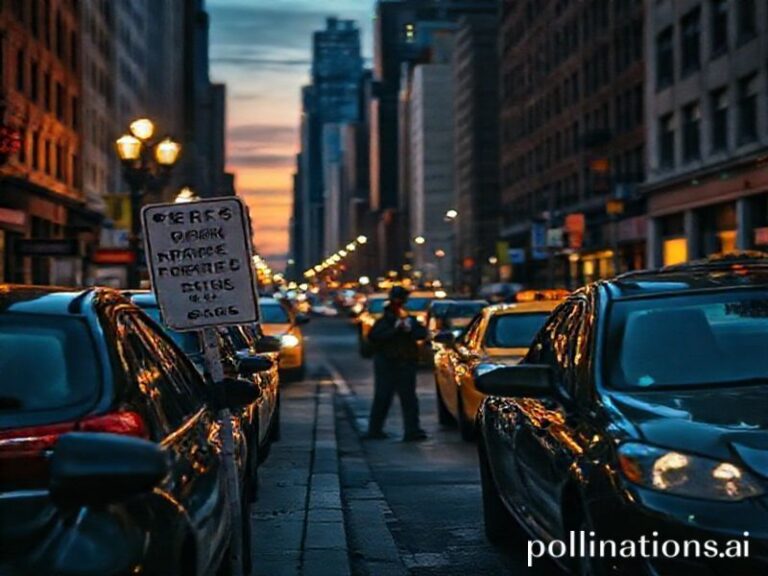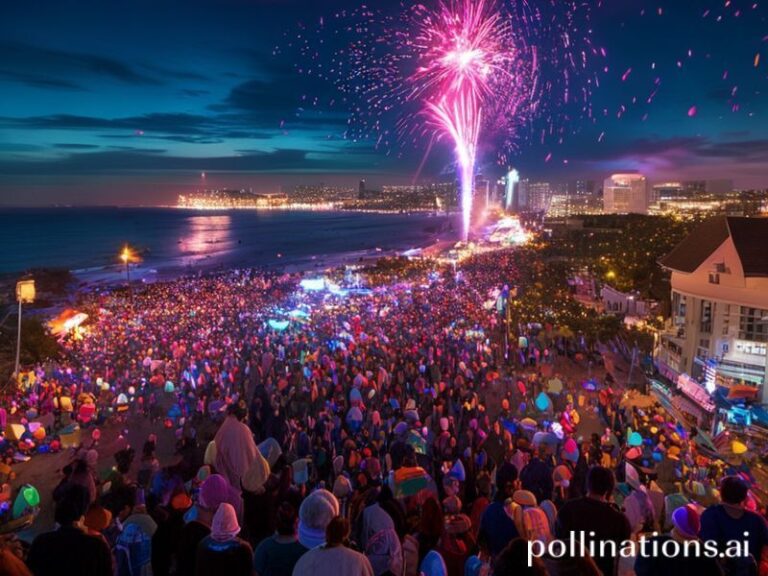The Ginger Globetrotter: How Ed Sheeran Conquered the World One Four-Chord Progression at a Time
**The Ginger Globetrotter: How Ed Sheeran Became the World’s Most Unlikely Cultural Imperialist**
In an era where American pop culture’s hegemony faces unprecedented challenges from K-pop, Afrobeat, and whatever TikTok algorithmic chaos emerges from the digital ether, one pale British troubadour continues his quiet conquest of global consciousness. Ed Sheeran—yes, that Ed Sheeranthe human embodiment of a lukewarm cup of teahas somehow transformed himself into the 21st century’s most effective cultural ambassador, proving that soft power doesn’t require actual softness, just an endless supply of four-chord progressions and lyrics your grandmother can hum while doing the laundry.
From Mumbai to Moscow, Seoul to São Paulo, Sheeran’s ginger visage peers from billboards like a benevolent medieval monk who’s discovered auto-tune. His mathematical album titles—remember when we all pretended this was clever rather than what happens when marketing executives run out of adjectives—have become the universal language of wedding receptions, karaoke bars, and that peculiar form of modern torture known as “hold music.” The man has achieved what the British Empire never could: convincing billions of people that colonization sounds best when accompanied by an acoustic guitar and lyrics about falling in love at a coffee shop.
The statistics read like a Pentagon briefing on cultural domination: 150 million records sold worldwide, Spotify’s most-streamed artist of the 2010s, and concert tours that generate GDP figures small nations would envy. His 2023 Mathematics Tour grossed $780 million across 54 cities, proving that while we can’t agree on climate change or democratic values, humanity can unite around a Suffolk lad singing about getting drunk on a plane. If that isn’t a metaphor for our collective priorities, perhaps we need a new metaphor entirely—or maybe just another Ed Sheeran song to help us process the existential dread.
What’s particularly fascinating, in that watching-a-car-crash-in-slow-motion sort of way, is how Sheeran’s Everyman persona translates across cultures that have never seen a castle on a hill or experienced the particular British phenomenon of being 18 and thinking your small town problems constitute universal human experience. Japanese teenagers weep to “Perfect” without knowing what a “dive bar” actually is. Brazilian wedding parties enthusiastically butcher “Thinking Out Loud” despite the concept of “a love that lasted so long” being increasingly theoretical in the age of dating apps and commitment phobia.
The Sheeran Industrial Complex represents something profound about our global moment: in an age of fragmentation, we’ve collectively decided that the safest cultural common ground is music that offends absolutely nobody and says nothing particularly interesting. He’s the musical equivalent of a United Nations resolution—everyone can agree on it because it doesn’t actually commit to anything controversial. While politicians fail to find consensus on climate action or economic inequality, the world’s youth can unite in their shared knowledge of every word to “Shape of You,” a song that manages to make physical attraction sound as exciting as filing taxes.
Perhaps this is Sheeran’s greatest achievement: proving that in the streaming age, you don’t need to be transgressive, innovative, or even particularly interesting to conquer the world. You just need to be consistent, wholesome, and capable of writing hooks that burrow into human consciousness like a particularly persistent earworm. While we’re all distracted by his nice-guy image and mathematical album titles, he’s quietly become more ubiquitous than Coca-Cola and nearly as profitable.
As we stumble deeper into the 2020s, with democracy faltering and the planet smoldering, Ed Sheeran stands as a beacon of something—though whether that’s hope or just effective market segmentation remains an open question. He’s taught us that the key to global domination isn’t military might or economic coercion, but rather the ability to write songs that sound like they’ve existed forever, even when you first heard them during your dentist’s waiting room yesterday.
In the end, maybe we deserve our Sheeran supremacy. In a world burning with actual problems, there’s something perversely comforting about knowing that millions of our fellow humans are simultaneously humming the same anodyne melody about love, loss, and whatever “Castle on the Hill” was actually about. It’s not quite world peace, but it’s close enough for pop music.







